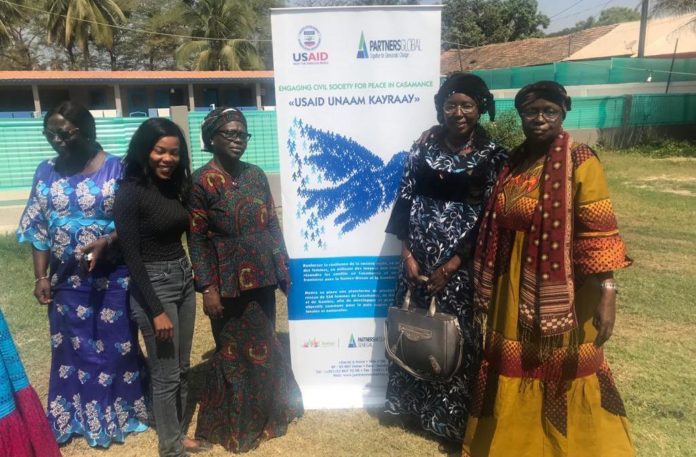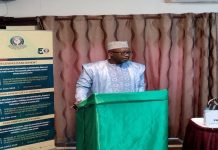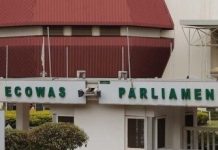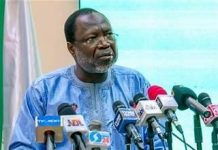By Amie Sillah
For 3 days the Sub- regional Peace Forum trained women from the Sub Region in the Peace Process which was a follow-up training from the previous training in Cooperative Advocacy. Representatives were drawn from The Gambia, Bissau Guinea and Senegal (Kaolak and Casamance – precisely Ziguinchor, Sediou, Kolda).
Put in the Regional and National Context, the objective is to map key, triggering moments of the conflict in the Casamance Region in the past two to three decades in all three countries, with a focus on the involvement of women and their contribution to finding solutions towards peace.
What our readers should know?
Women’s contribution to the Peace Process in Casamance was undocumented. Women played a major role towards peace in the Region, making the sharing of experiences through stories an emotional moment. History passes to the next generation, especially through oral history and this remains a liability when it comes to documenting the rich contributions of women to the peace process.
In their presentation, representatives from Casamance highlighted the conflict there in a chronological order, which started in 1982 with a meeting for peace of women; by 1997, a women’s association participated in the peace negotiations; in 2001, KAQBOUNKATOR was created; in 2010, there was high mobilization of civil society; in 2010, PFPC was created (Women Peace Platform); two years later, all Presidential candidates in Senegal who were interviewed gave an undertaking to prioritise the Casamance conflict on their political agenda; in 2012, the flame of peace is given symbolically to the women of Casamance by the newly elected President of Senegal; in 2015, the FFSGB was established; and of late the involvement of women in negotiating with MFDC leaders and the return of refugees.
The Guinea Bissau delegation traced the conflict to 1998, with support given by the Senegalese armed forces to the Government in Guinea Bissau. The analysis indicated high political instability in the country. They say there iss no president who kept his mandate till the end of his term. Though at the moment there is a president after the just ended elections, there is still danger. Padre Domingo is named as one of the main contributors to the peace negotiations.
The Gambian delegation highlighted the conflict timeline by tracing the start to 1991 when there was an exodus influx of Senegalese refugees into Gambia territory. Food insecurity, land dispute, drug trafficking, disputes over social services due to the influx of refugees into Gambian territory as triggering events in the conflict, being both cause and effect.
Out of all three presentations, strong solidarity of women in the three countries and across borders was noted, showing that the Forum creation was the natural outcome and an opportunity for women from the three countries to be involved in the peace process.
In this three days workshop Advocacy and Lobbying was dealt with in detail and each country developed a Country Work Plan to be executed within a 5 year timeline 2019 to 2023.
Senegal highlighted that the Peace process is dormant and the Protagonists have taken rigid positions and the MFDC now has numerous splinter groups. It has to develop a strategy of involving other regions to focus on ending the conflict by forging alliances and new partners.
The Gambia highlighted on low participation of women in decision making. It posited that it has to develop an Advocacy Plan to reach to the law makers and also a general mobilization for everyone to support the Quota System for women in all representative institutions so that women will en masse join the peace process at all its stages to bring women peace expertise to the negotiating table.
The Gambia also highlighted the activities of citizens of the three countries at the border villages to create a Peace Committee of villagers and local authorities to bring about cessation of hostilities and stability for the three countries.
The Guinea Bissau delegation highlighted instability, especially activities of the border villages as its’ main concern. Its National Action Plan focuses on on an Advocacy Strategy that will create a general mobilization that will bring about a stable nation which will realise its dream to bring about peace, progress and prosperity.
Officers from Global Partners, Senegalese Partners and USAID graced the occasion.





















